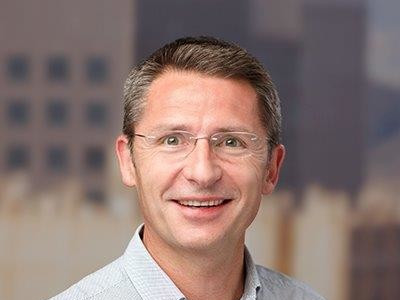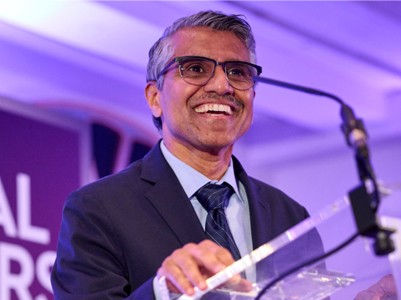
Sustainability is dead – true or false?
Myths abound when it comes to corporate sustainability. Can you tell fact from fiction? Test your knowledge on the common misconceptions here....

by Magdi Batato, Xavier Mesnard, Suketu Gandhi Published May 21, 2024 in Brain Circuits • 3 min read
Amid uncertainty, companies need agility, flexibility, and speed. With supply chain disruptions becoming the new normal, decision-making should be dispersed to the points in the organization where it makes sense for them to be made.
This is why we need a new model of operations management to replace the old command and control model. Making this model work requires four vital enablers: trust, talent, transparency, and technology.
Delegate decision-making and trust that your decision-makers will do what’s best for the company. At the same time, operators must understand which issues to escalate and how. Mutual trust should be the bedrock of your operations management model.
Train your operators to make sure they are comfortable taking on decision-making. The skills and capabilities needed today include analytical thinking, contemporary market intelligence, digital and data expertise, logic and reasoning, and soft skills such as interpersonal communications.
Offer access to the information needed. For both leaders and operators, it’s critical to have clarity on the relevant data to understand the impact of decisions and actions.
Look to technology to provide transparency and enable training. The right tools allow a company to gather and disseminate information leaders and operators need. Additionally, AI can help guide decision-makers at all levels and, in some cases, make certain decisions with oversight from humans. At the same time, technology enables quality training for your talent.
Successful companies like Nestlé have employed operator-centric models to help them not only react to disruptions but also anticipate what’s next. With four pillars in place – trust, talent, transparency, and technology – you can empower operators to make more effective decisions for the good of the company.

Magdi Batato is on the supervisory board at Carlsberg as well as being a member of the audit and remuneration committees and member of the sustainability advisory council. He has an independent non-executive view of shareholders.

Xavier Mesnard is a partner in Kearney’s strategic operations practice. He has more than 35 years of strategy and management consulting experience with a focus on operations excellence in the consumer goods, retail, and engineering industries.

Suketu Gandhi is chair of the global strategic operations practice at Kearney. He is a recognized industry leader and subject matter expert on a wide range of operations topics, with an emphasis on end-to-end supply chains.

19 hours ago • by Julia Binder in Brain Circuits
Myths abound when it comes to corporate sustainability. Can you tell fact from fiction? Test your knowledge on the common misconceptions here....

February 19, 2026 • by Michael D. Watkins in Brain Circuits
As AI reshapes business operations, your leadership development efforts must focus on enabling humans to continue to add distinctive value. Michael D. Watkins explains how to use the 75/25% rule to guide...

February 18, 2026 • by Cindy Wolpert in Brain Circuits
How people engage with you is shaped by your brand. If you are known to be reasonable, pragmatic, and strategic, they will want to work with or for you. But if you...

February 17, 2026 • by Stefan Michel in Brain Circuits
Many of us still equate gaming with dudes playing video games like Grand Theft Auto in a basement. In fact, as Bastian Bergmann told Stefan Michel in a recent I by IMD Book...
Explore first person business intelligence from top minds curated for a global executive audience